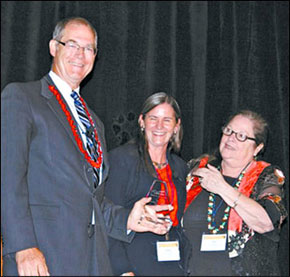- LLBO Home
- Administration
Administration
Child Support Enf.DMVDuluth OfficeEconomic DevelopmentEnrollmentFinancial ServicesFleet ManagementLegal DepartmentMIS
Opioid TreatmentPurchasingSecurityT.E.R.O.TransitTribal DevelopmentTwin Cities OfficeUtilities Commission
Tribal Court
Court HomeCourt FormsCourt FinesCourt Codes
Attorney ProceduresBaMeNim AnishinaabegDiversionTribal Court Awards
Tribal Police
LLTPD HomeAnimal ControlDomestic ViolenceMeth Coordinator Prescription Drug
- Education
- Health Division
Health Programs
AmbulanceBehavioral HealthCar Seat ProgramD. Fitness CenterENPEmergency Prep.Environmental HealthFamily Spirit
Food DistributionHome Health CHRMed TransportationNutrition ServicesOccupational HealthPatient BenefitsS.H.I.P.
Elder & Disability Services
Nursing programs
Child & Teen ClinicLL Diabetes ClinicTransform Rez
Health Reports
- Human Services
Addictions & Dependecies Program
A & D ProgramAdolescent OutpatientAhnjiBeMahDis HouseAssessment UnitFamily Violence Prevent
Outpatient TreatmentRecovery MaintenanceRelapse PreventionWomen's Halfway HouseWomen's Services
Child Welfare
Adoption ServicesChild Abuse PreventionChild ProtectionFamily Preservation
Foster CareParent Support ServicesTruancy PreventionYouth Living Skills
Other Human Serviecs Programs
- Res. Services
Reservation Services
EngineeringFacilities ManagementHeavy EquipmentRoads & SurveySanitation
Small Vehicle GarageSolid WasteWell & SepticWell Drilling
Community Services
- Resource Mgmt.
- Tribal Assistance
Tribal Assistance Programs
Contact Us
(218)-335-8200 Phone
(218) 335-8309 Fax
Address
190 Sailstar Drive NW
Cass Lake, MN 56633
Hours of Operation
Monday - Friday
8:00 a.m. - 4:30 p.m.
Tribal Court Awards and Recognition
Leech Lake Wellness Court Earns Award For Innovation
By Jennie Anderson, Northwoods Press
 Picture: Cass County District Court Judge John P. Smith (left) and Leech Lake Tribal Court Judge Korey Wahwassuck (center) receive their Wellness Court Award for Court Innovation from the National Criminal Justice Association at a recent ceremony held in New Mexico. Jeri Boisvert, Bureau of Justice Assistance, Executive Director, Minnesota Department of Public Safety is pictured with Smith and Wahwassuck. Photo Submitted.
Picture: Cass County District Court Judge John P. Smith (left) and Leech Lake Tribal Court Judge Korey Wahwassuck (center) receive their Wellness Court Award for Court Innovation from the National Criminal Justice Association at a recent ceremony held in New Mexico. Jeri Boisvert, Bureau of Justice Assistance, Executive Director, Minnesota Department of Public Safety is pictured with Smith and Wahwassuck. Photo Submitted.
The Leech Lake Wellness Court (LLWC) was created in 2006 with a grant received from the Minnesota State Administrator’s office. Cass County District Court Judge John P. Smith and Leech Lake Tribal Court Judge Korey Wahwassuck have presided jointly in the court since its inception.
Now, in 2012, this unique problem-solving court, billed as the first collaboration between a tribal court and state criminal court in the United States to combat drug and alcohol addiction, has won an award for court innovation from the National Criminal Justice Association at its annual forum held in Santa Ana Pueblo, New Mexico. “When we started this program, we tried to find a model, but we found out that we were the model,” said Smith. “This is the first time any tribal court and state court have joined together for this type of program.”
It is the mission of the LLWC “to provide hope and opportunities for appropriate treatment with accountability, thereby improving the quality of life within families and in the community.
”Excessive drinking cost the U.S. economy $223.5 billion in 2006, according to the federal Centers for Disease Control and Prevention. In 2009, 10,839 people were killed in alcohol-impaired driving crashes, accounting for roughly one-third of all traffic-related deaths in the U.S. that year.
The LLWC handles cases of both tribal members and non-Indians.
According to Smith, “Cass County is one of the top counties in the state for deaths from driving under the influence.”
It is estimated as many as 60 percent of the reservation’s tribal residents struggle with drug and alcohol addictions. It’s a problem that touches nearly every family. “We have a rampant substance abuse problem on the reservation,” said Wahwassuck. “I have seen so many people sent to prison or jail that were being punished for an addiction. That is not solving anything; it just sends them right back through the revolving door. We really want to break that cycle.”
There are stiff guidelines and rules to be followed for cases handled by the LLWC. The offender must successfully complete a treatment program, submit to random chemical testing, have supervised probation, attend weekly court hearings, get a job, get their driver’s license reinstated, perform community service, attend support meetings, and continue abstinence and maintenance of recovery to live a chemical-free lifestyle.
To be able to graduate from the program, the offender has to prepare a written application; show continued sobriety (no positive tests for 180 consecutive days); be gainfully employed; make all court appearances; have a stable living environment, with clean and sober relationships; have a continuing care plan, which includes support meetings and counseling; and fulfill all court obligations.
Due to limited resources, the Leech Lake Wellness Court is capped at 25 participants at a time. In the past six years, 61 persons have gone through the program in Cass County. About half have successfully graduated. And among those graduates, only two have re-offended.
According to Chad Christofferson, LLWC team therapist, there are four things the clients must focus on: accountability, responsibility, honesty and change. “If you do the first three,” he said, “the fourth one will happen.”
One participant in the program said, “They (LLWC) understand that this is an addiction. It’s not just a problem, it’s a disease. We aren’t being punished, we’re getting help.” Wahwassuck said, “The program is about wellness – spiritual well-being, physical well-being and mental well-being – so that a person becomes whole when they get out of the program.”
“It’s hard not to get involved as part of the team,” said Smith. “When you have a good rapport with people, it creates respect on both sides – respect for the team and a respect for the people in the program. You understand that they’re not much different than you are.”
“I was given a clean slate. I had an opportunity to change my life, and to prove myself,” said Jeremy, a 2009 graduate from LLWC. “Once I came to the realization that they were trying to help me, the rest fell into place.”
“I am so grateful for Wellness Court,” Jeremy continued. “I have earned the trust of my mother and father. I don’t have to see the disappointment in their faces anymore.”
Wahwassuck explained that many of the people on the program come into their appointments with pride after a few months into their recovery. “This pride spreads to the people around them, changing everyone for the better and rebuilding lives,” he said.
“Nothing speaks more loudly than someone who talks about their own experience, and the road they were headed down, and to see what they are doing with their life now,” said Wahwassuck.
“Jail just wasn’t working. People would get out, and then re-offend,” said Smith. “Wellness Court provides a way to address that problem. This is what justice is all about. It’s people helping people; it’s providing society with a safe place to live.”
Reprinted with permission from Cass Lake Times Vol. 114, No. 34 Wednesday, August 22, 2012.
Links
National Criminal Justice Association
http://www.ncja.org/about-ncja


